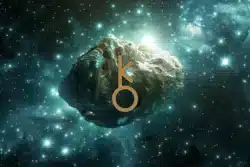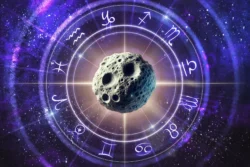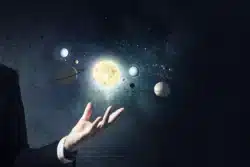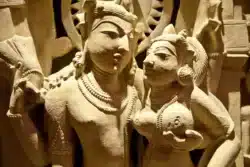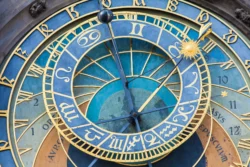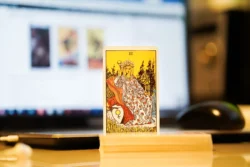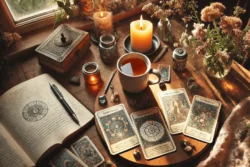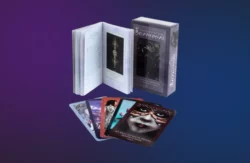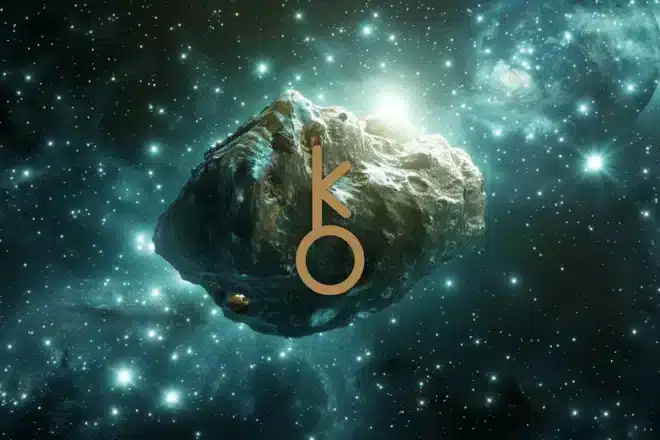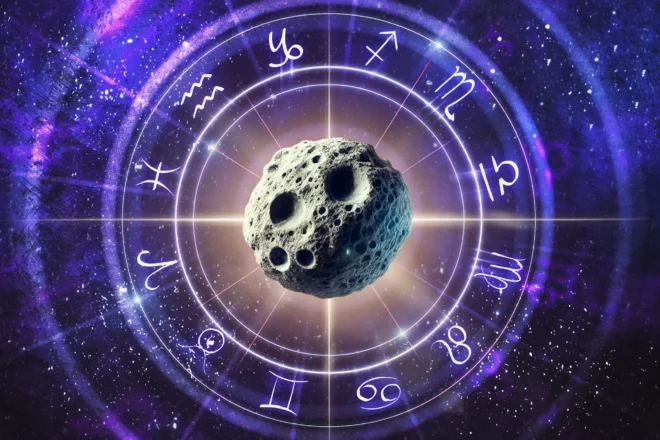With Saturn and Pluto in Capricorn rapidly approaching their first and only exact conjunction in this cycle; on 12 Jan 2020, control and power issues are more prevalent than ever. In order to avoid the worst kinds of ego play that may rise up, I have dipped into the wisdom of a book called, “The Celestine Prophecy”. First published in 1993 this book was a huge success in the 90s and raised some insights that are equally relevant today. Introduced under ‘the fourth insight’ the concept of ‘control dramas’ both simplified and revolutionized awareness in how people interact and drain energy from one another. This is a perfect time, astrologically, to introduce such wisdom to a new generation.
What does a Saturn & Pluto conjunction mean?
To put it simply; Saturn is all about structure, tradition, business, financial status, and hard work. Pluto is about unprecedented change, evolution, transformation, death/loss, inheritance, and sex. These two planets create huge waves alone in astrology and we will all be familiar with their themes at some point in our lives, as they traverse their orbits; aspecting all of our personal charts from time to time. Those with planets at, opposite or square 23 Capricorn will be most affected by this conjunction, but it is powerful enough to impact us all. Just look at the effect it is having in the political world already! Capricorn is all about rules, politics, status, and achievement, it is notable how much emphasis is upon these areas already.
Have Saturn & Pluto been conjunct before?
The cycle is such that they are conjunct (in the same place in the zodiac) every 33-38 years. The last time was in 1981-1982, this occurred in Libra and a small recession was followed by the new wave of financial possibility. In the UK the term ‘Yuppie’ was used to describe an affluent generation who were able to make money more quickly than their predecessors. The industry responded by creating a new trend of aesthetic, impulse buys, bought to impress and created not to last, so as to need replacing. The birth of modern consumerism.
Next after this publicity
The conjunction prior occurred just after the second world war, in 1947 and reflected a world which changed beyond recognition; in lifestyle, monetary trends, fashion, and values. This was in the sign of Leo. The one prior was in Cancer and marked the beginning of WW1 which changed social class systems and family set-ups forever.
Should we be worried?
Since in astrology a lot occurs during a build-up to a big event, much of what is expected to happen already has. The UK and US leaders have both been threatened with impeachment, liberal views have quite alarmingly gone back a step. Increased conservatism in law has created an underground strand of sexual perversion (just look at social media’s recent subversions) which emulates the Victorian era, a time which would be most accurately described as ‘Capricorn’ or ‘Saturnine’ in its very nature. There won’t be so much more that occurs on January 12th that hasn’t already; in fact, the tension that I think we are all quite profoundly aware of, will begin to dissipate and solutions will start to become more available.
What can I do?
On a personal level, we can all make a contribution to creating a more hospitable and loving society. Many of us have become more stressed and allowed our standards to drop; in terms of how kind, forgiving and accepting we are. It’s easy when fronted by another’s; to copy and continue bad behavior, but I don’t think any of us are proud of doing such. Deep down most of us want to make a difference and be kinder and more connected to one another.
We all, intrinsically want to love and be loved, and yet it’s easy to be ‘tricked’ into negative behavior when certain types of interaction occur. By understanding the ‘control dramas’ first written of in The Celestine Prophecy by James Redfield, we can learn to sidestep energy battles and focus upon speaking and acting from our hearts.
What are ‘control dramas’?
They are based on a simple power play between humans and illustrate how we earn attention and siphon energy from others; using quite obvious and definitive methods. Of course, it is important for a child to gain attention from their parents in order to survive, yet even this instinct is, in effect, a form of manipulation. However, it is a necessary one, but the continuation of any methods to control or win attention should no longer be relied upon by adults.
Next after this publicity
You will likely be familiar with them all, I do also acknowledge that in the parent/child dynamic, there is some validity to these using the below methods, as parenting techniques. If we got out of these habits however, we would probably find healthier, more effective methods to raise and support our children.
1. The Intimidator
This, at its worst, is the archetypal army general; shouting orders, expecting them to be heard and carried out. Using volume and stance to create fear (rather than respect) and relishing in the control and power gleaned over another.
Anybody can be an intimidator though, a child going through their Mars return at 2 years old, learning their own power can, in fact, be using this method to impress their will, via tantrums, upon others. A strict disciplinarian or rule follower will also fit into this drama type. In fact, one can intimidate in silence, if aware of others’ weaknesses and able to effectively create a persona from which others crave approval.
2. The Interrogator
Wordier and sometimes loud also, the interrogator loves to battle and argue. They want to tell you exactly where you’re going wrong and point out how you should live your life. It’s their way or the highway, somebody playing out this drama will be unable/unwilling to listen or be reasoned with, “there is only one way and that is the ‘right’ way” you may hear them say. This control drama may also play out as defensive; managing to twist any situation into one which is ‘against’ them, as if you are not supporting their view entirely, you are disarming them and taking away their control. They may be good at influencing, and this form of energy play is a day to day feature in politics. Even activists, who may well have lovely intentions, often slip into this role of being over-bearing and judgemental of anybody who doesn’t follow their controlling lead.
3. Aloof
This one is a little less obvious and often employed by those who have been subject to control drama 1 and/or 2, so often that they have learned that they won’t be listened to anyway. So, they play the role of being separate from it all, taking no responsibility and having no input. Surely if they say nothing, they can be blamed for nothing? It is more than this, however, as the energy play here is that the ‘aloof’ person is looking for somebody to approach them and ask, ‘what’s wrong?’ Or perhaps to seek their opinion. By acting separate and apart from the crowd, they attract their own form of energy. This isn’t just self-preservation (as they may convince themselves) but a bid to intrigue and win favor of others by way of tapping into natural human curiosity. These are the types who will go ‘quiet’ when questioned or try to create the most exciting work in order to draw in the crowds. Secretly they want to be in the spotlight and are desperate for attention.
4. Poor Me
Particularly fashionable at the moment, I probably don’t even need to explain this one. We have all seen the ‘victim mentality’ and increasing popularity in ‘being offended’ recently. It’s a very effective way to win instant attention and energy from others, and with political correctness at its peak, we see that the ‘poor me’ control mechanism works rather too well in a world which fears being sued.
Next after this publicity
You don’t see this so much in the older generation whose robustness would balk at such an approach, but these days seeking sympathy has become a very effective way to win all kinds of interactive play and most of us fall for it immediately.
Yet those who actually need help are the ones who rarely ask, should we really be giving all our attention to those who are blatantly asking for it, and taking no responsibility for their lives?
What do you think?
Do you recognize any of these control dramas playing out in your day to day life? Do you use any of them yourself….be honest? I know I have! Can you see the one thing that each has in common here too?
Each drama seems to be convinced that not only are they separate from every other person, but also that they are correct. That their view and their approach is the ‘right one’ and that others are not. Does this mindset in any way help us to connect, learn, or be happier in our lives?
We are, after all, all connected, all experiencing the same human condition and all intrinsically wanting to be loved and accepted. Perhaps by recognizing these dramas next time we see them, we can say, “I appreciate you” or simply smile and turn our attention to something else. Since the core purpose of all of these dramas is to win energy and attention, refusing to participate is the simple, most effective and loving choice we can make.
Shalom and blessings~~~~~




